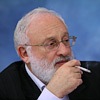The Purpose Of The Human Imagination
 Kabbalists have a rule not to talk about anything except what they have actually attained, where attainment means the highest degree of understanding. In other words, until we achieve an absolutely clear realization, until the knowledge passes from the first nine Sefirot into Malchut, it is not called attainment.
Kabbalists have a rule not to talk about anything except what they have actually attained, where attainment means the highest degree of understanding. In other words, until we achieve an absolutely clear realization, until the knowledge passes from the first nine Sefirot into Malchut, it is not called attainment.
Then what is the role of imagination and fantasy? Why are we given these qualities? Without imagination, advancement is impossible, and we see this from regular science. You can use your imagination, but the most important thing is not to take it for something that is really happening. However, without the imagination you would be an animal, not a human being.
Man’s entire merit over animals comes from our ability to feel the first nine Sefirot, to fantasize, and to make conjectures beyond one’s actual perception and attainment. An animal lives only inside Malchut, matter, and it feels only the forms that are clothed into it. We, however, are able to imagine an abstract form and essence, and this allows us to develop further and be called human beings.
However, we are prohibited from using our imagined knowledge until it enters our matter, just as it would with animals. This constitutes a paradox. We are always proud of being human, of having a mind that is above our animate body. However, we cannot rely on it until it acts for the benefit of the body, inside the desire.
In the spiritual Partzuf, we check our desires under a screen, and the head merely performs a calculation. Then everything occurs according to the matter that is able to take on the form of bestowal. Everything else is our external desires, and we cannot use them since we are not in control of them.
First we have to adjoin them to ourselves and accept all of the Light into them. Then the whole of reality will become unified and we will be able to use those desires. This will constitute our correction.
Until then, abstract forms only help to move us toward the full correction. With their help, we are able to connect to the Upper Level because we are able to see and check things; however, we cannot use them practically.
Our greatest problems in life come from the fact that we attribute what we desire to actuality and build plans based on fantasies, thereby separating from matter. Kabbalah advises us to fantasize in abstract form about the Upper Level and the future, but then work on ourselves in order to “pull up” our desires and matter to the level of that fantasy. Then the abstract form will clothe into matter; we will change instead of simply mistaking our fantasies for actuality.

 Laitman.com Comments RSS Feed
Laitman.com Comments RSS Feed





In the different moments of our life, we dream or fantasize about ourselves really doing what we felt we are meant to do. Is simply restoring this desire to reality will be the correction?
Jorge Schlichting
from Chile
According to the life span there is law of succession at all living creatures that reparations is localized to cycle of doing things It all manifestation from human being reflected to our depth of life which we vibrate all components from past life to our so called perfection ! on the way or path there is funny things, as fantasy, but life is on the basis of reality as god essence to all achievement to perfected human s It part of life to be resorted to understand our inner creature, but it is not ideal or the only way to restore our life to wellbeing or wellness ! Thank You
Dear Rav Laitman,
I have great respect for your work and have a few questions that I have been wrestling with for a long time. To which sephirah (or sephirot) is the imagination (dimyon) connected? Imagination seems related to discursive consciousness (Binah) and yet also to the yetzer ha-tov and yetzer ha-ra (Chesed and Gevurah). It also seems related to Netzach and Yesod because of their connection to prophecy. Cordovero assigns dimyon to Malkhut. In one of your articles you seem to suggest that the imagination precedes Malkhut. Does Binah include all forms of discursive mind? I would greatly appreciate your insights.
Thanks and Blessings,
Dr. Charles Burack